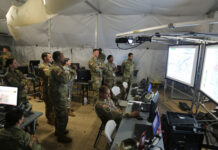Sweden and Finland have long followed a policy of military neutrality so as not to incur Russia’s wrath. However, the unprovoked Russian war against Ukraine has changed the attitude of these countries.
Both Sweden and Finland announced their wish to join the North Atlantic Alliance in mid-May. Then, out of the blue, came obstruction from Turkey with the claim that both countries were financing terror and supporting Kurdish “terrorist” groups that Turkey has been trying to eliminate for the last 40 years or so. One of the major handicaps of the North Atlantic Treaty was and still is the omission of information about a NATO country blocking the participation of non-NATO states in NATO activities or the joining of new NATO members into the Alliance. Admission of new NATO members requires the unanimous consent of all members and the subsequent ratification of protocols by their respective parliaments.
From Neutrality to Potential Membership
In other words, there is no such thing as official veto power embedded in the Treaty that President Erdoğan imposed on these Nordic countries wishing to join the Alliance. This imposition can be called an attempt at blackmail. What is evident is that Ankara is seizing the opportunity to score political gains both in domestic and foreign policy, even though Turkish officials will disagree with the author. There is no doubt that the Turkish presidential and parliamentary elections are very much on Erdoğan’s mind. The President’s party is doing badly due to the failing economy and the impulsive foreign policy that has isolated Turkey over the last decade. In addition, Ankara hopes to use both this membership bid by both countries to establish a precedent for current and future accession candidates such as the Balkan countries to deliver supporters of Fethullah Gulen to Turkey. Finally, Turkey can make new demands not mentioned in the non-binding trilateral Memorandum of Understanding (MoU). Despite Turkish blackmail, Finland and Sweden agreed to ease some of Turkey’s conditions. These conditions were spelled out in the trilateral MoU signed by the foreign ministers on 28 June.
What They Agree
At a press conference in Madrid on 30 June, Erdoğan said: “The agreement that was signed is just a beginning, an invitation. What is of essence is that promises that were made are put into action.” Both countries have since updated their anti-terror laws that entered into force on 1 July. Both have agreed to lift the de facto arms embargo that was imposed on Turkey in October 2019 once they are treaty allies with Turkey and to establish joint security mechanisms. Both also agreed to “address Turkey’s pending deportation and extradition requests of terror suspects expeditiously and thoroughly, taking into account information, evidence, and intelligence provided by Turkey.”
Points of Contention
The document also notes that they will “establish necessary bilateral legal frameworks to facilitate extradition and security cooperation with Turkey in accordance with the European Convention on Extradition.” Does this mean that if a terrorist case contravenes the European Convention the person will not be delivered to Turkey? This is not a clear-cut issue. Nevertheless, Turkey’s Justice Minister, Bekir Bozdağ, said on 4 August: “I am awaiting the extradition of 33 terrorism suspects from Sweden and Finland.” The other sources cited not 33 but 73 terrorists. The response of Sweden’s Foreign Minister, Ann Linde, was crystal clear: “We will not agree to any extraditions unless there is proof of terrorist activity. There is no reason for Kurds to think that their human rights or democratic rights are at risk.” Well, if the answer from Sweden is No, then the response from Turkey is No for the Nordic countries membership in the Alliance.
Erdoğan warned at the same press conference: “Sweden and Finland must remain faithful to their pledges; otherwise, it is out of question that [their membership] would be brought before, and finally, approved by [the Turkish] parliament.”
Should Turkey revert to playing hardball on the Nordic countries’ accession and block the two countries admission to the Alliance, NATO member states should unite against Turkey. Under such circumstances, Erdoğan will be forced to consent to the Nordic countries’ accession without any strings attached or, alternatively, Turkey will be isolated within the Alliance and its decision-making processes. Whether or not Erdoğan will decide to leave the military structure voluntarily while remaining a part of the political structure of NATO remains to be seen.












